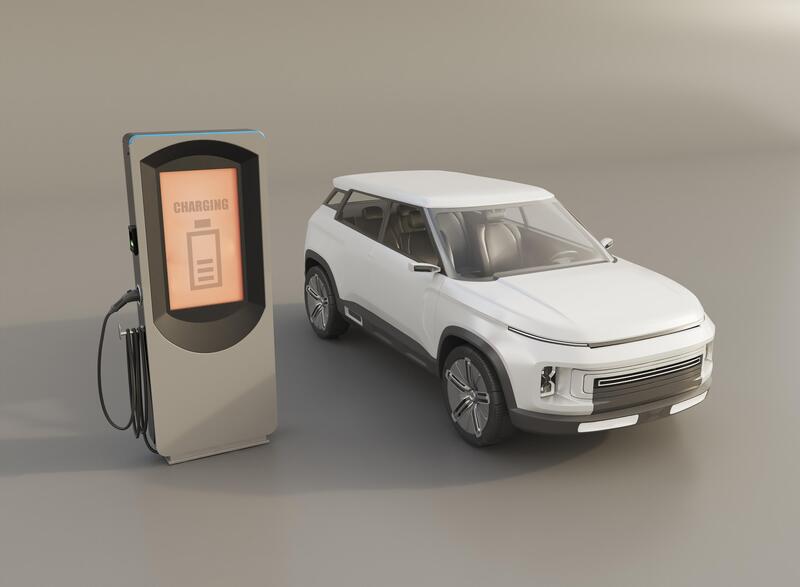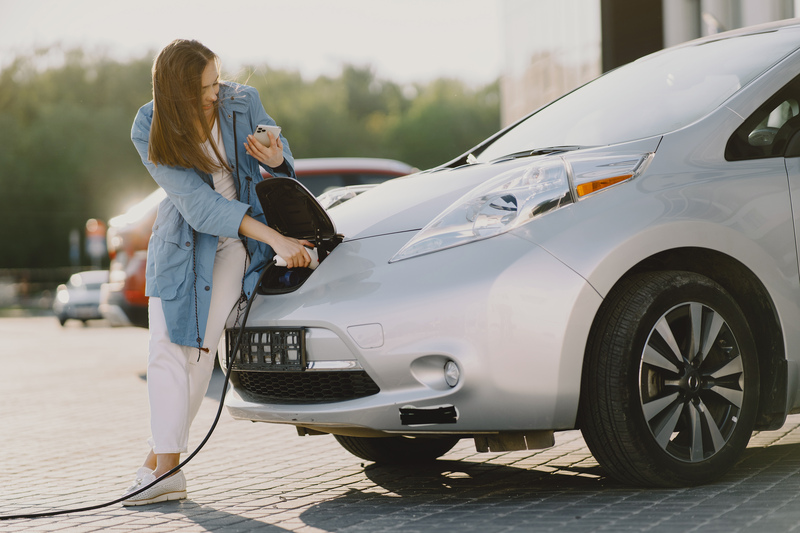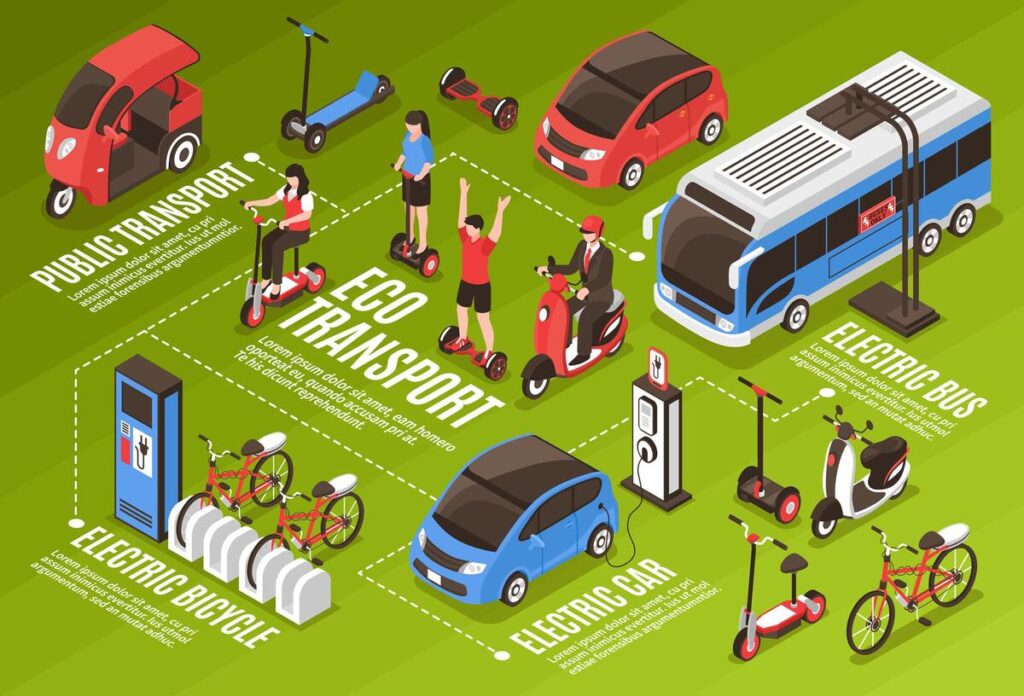Automobiles powered by electric motors are known as Electric Vehicles (EVs). These vehicles use rechargeable batteries as their main source of energy. They are considered as a clean and sustainable option to conventional fossil fuel-powered vehicles.
In recent years, Electric Vehicles have gone through a noteworthy surge in popularity and adoption worldwide. This growth can be accredited to various factors, such as advancements in battery technology, government incentives, and skyrocketed environmental consciousness among consumers.
Owning an electric vehicle minimizes reliance on fossil fuels. They also reduce carbon emissions. These provide long-term cost savings on fuel and maintenance.
Today, we will talk about the advantages and disadvantages of electric vehicles. You will also get to know about what the future holds for them. So, without further ado, let’s start the discussion.
Advantages of Electric Vehicles:

Electric vehicles (EVs), also known as battery powered vehicles, offer a range of advantages. These advantages make the vehicles a sustainable choice for individuals and the environment. Here are some key advantages of electric vehicles:
1. Environmental Benefits: EVs produce zero tailpipe emissions, resulting in a remarkable reduction in air pollution and greenhouse gas emissions. By moving to this means of transportation, you can alleviate the impact of vehicles on climate change, improve air quality, and decrease noise pollution.
2. Energy Efficiency: EVs have more energy efficiency compared to internal combustion engine vehicles. They convert a higher percentage of the energy stored in their batteries into actual propulsion, while traditional vehicles waste a significant portion of energy as heat. This efficiency translates into a longer driving range for EVs on a single charge.
3. Cost Savings: Although the upfront cost of EVs is often higher, they offer long-term cost savings. Charging an EV costs less than refueling a conventional vehicle with gasoline. Furthermore, EVs have fewer moving parts and require less maintenance, resulting in reduced maintenance and repair expenses over time.
4. Renewable Energy Integration: EVs provide an opportunity to integrate renewable energy sources into the transportation sector. You can charge the EVs with electricity generated from renewable sources like solar or wind power. This way, you can minimize carbon emissions and reliance on fossil fuels.
In a nutshell, electric vehicles deliver a clean and sustainable transportation alternative with environmental benefits, energy efficiency, cost savings, and chances for renewable energy integration. As the charging infrastructure continues to grow and electric battery technology improves, the advantages of EVs will become even more enthralling, making them the superb choice for the future of transportation.
Also Read: The Future Of Electric Vehicles: Benefits, Growth, And Challenges
Disadvantages of Electric Vehicles:

Electric vehicles (EVs) have some disadvantages to consider. Here are some of them:
1. Limited Driving Range: Compared to traditional vehicles, EVs generally have a more limited driving range on a single charge. It is seriously a concern for long-distance travel or in areas with limited charging infrastructure.
2. Longer Refueling Time: Charging an EV takes a long time. While home charging overnight is convenient, charging in the fast-charging stations in public places may still require more time for a full charge. This can be an inconvenience for those who need quick refueling during long journeys.
3. Manufacturing and Battery Production: The manufacturing process of EVs and their battery packs involves the extraction and processing of raw materials, which can have environmental impacts. Moreover, the production of lithium-ion batteries needs significant energy and resources.
4. Battery Life and Recycling: Over time, the capacity of EVs to hold a charge may diminish, reducing the driving range. Battery replacement can be expensive. Moreover, recycling and disposing of EV batteries pose challenges due to their complex composition and the need for specialized recycling facilities.
Clearly, there are both pros and cons of electric vehicles. Despite the disadvantages, the overall advantages of electric vehicles in terms of decreased emissions, energy efficiency, and long-term cost savings make them a promising and echo-friendly transportation option. The continuous advancement in technology and improvement in infrastructure will eventually help the disadvantages associated with electric vehicles decrease, making them an even more compelling choice for sustainable mobility.
Must Read: Types Of Electric Cars – Hybrid Vs Plug-in Hybrid Or Fully Electric
Government Support and Incentives:

Throughout the world, governments are promoting the adoption of electric vehicles (EVs) through various support and incentive programs. Policy initiatives include setting targets for EV sales, implementing stricter emissions regulations, and promoting research and development in electric vehicle technology. Financial incentives such as tax credits, rebates, and purchase subsidies help offset the higher upfront costs of EVs. Governments are also investing in the development of charging infrastructure, including public charging stations, to alleviate range anxiety and facilitate EV ownership. These efforts aim to quicken the transition to sustainable transportation and decrease the reliance on fossil fuels.
Technological Advances and Future Outlook:

Technological advances in electric vehicles (EVs) are transforming the automotive industry and shaping the future of transportation. Here are some significant developments and their future outlook:
1. Battery Technology Improvements: Ongoing research and development are focused on enhancing battery performance, including increasing energy density, improving longevity, and reducing costs. These advancements will lead to EVs with longer driving ranges, shorter charging times, and more affordable prices.
2. Range Enhancements and Fast-Charging Solutions: Innovations in battery technology and charging infrastructure are addressing the issue of limited driving range and longer refueling times. The introduction of fast-charging solutions allows EVs to be charged faster, making long-distance travel more feasible.
3. Autonomous and Connected EVs: The integration of autonomous driving technology with EVs is a promising development. Self-driving EVs can optimize routes, enhance safety, and provide a seamless and convenient experience. Moreover, connected features enable real-time data exchange, remote monitoring, and smart charging management.
4. Impact on the Automotive Industry and Transportation Sector: The rise of EVs is reshaping the automotive industry. Traditional automakers are increasing their investments in EV production and expanding their electric vehicle lineups. At the same time, many startups are emerging in the EV market. This shift toward electrification is also impacting the transportation sector, including ride-sharing and delivery services, as they adopt electric vehicles for their fleets.
Looking ahead, the future outlook for electric vehicles is highly promising. Technological advancements will continue to drive improvements in battery performance, range, and charging infrastructure. The increasing adoption of autonomous and connected features will revolutionize the driving experience. As governments and consumers prioritize sustainability, the demand for electric vehicles is expected to surge, leading to a cleaner and more sustainable transportation system.
Final thoughts,
Needless to say, Electric vehicles (EVs) offer numerous advantages. However, they also have limitations such as restricted driving range and longer refueling times. Despite these drawbacks, the ongoing technological advancements in technology, range enhancements, and charging infrastructure development are driving the future of EVs. With the potential for further improvements and government support, EVs hold the promise of a sustainable transportation future, reducing emissions and dependence on fossil fuels. The automotive industry continues to progress. Therefore electric vehicles are expected to play an important role in shaping a cleaner and greener transportation system.
